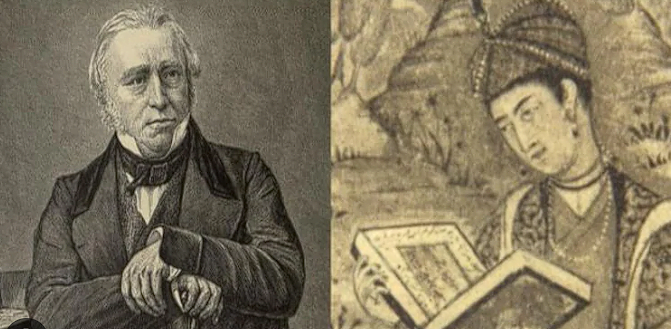
Introduction
The history of India is a rich tapestry woven from diverse cultures, traditions and influences. Of the many legacies left by colonial rule, perhaps one of the most profound is the transformation of the Indian education system under British rule. From the establishment of formal institutions to the introduction of the modern curriculum, the British imprint on Indian education has continued to shape the intellectual landscape of the country. In this exploration, we explore the multifaceted effects of British influence on the Indian education system.
Historical context
The arrival of the British East India Company in the Indian subcontinent in the 17th century marked the beginning of a new era. With them came profound changes not only in trade and governance but also in educational patterns. Initially, the British focused on providing Western education to train Indians for administrative roles within their colonial system. This laid the foundation for the establishment of English medium schools and universities, which became the cornerstone of modern education in India.
Expansion of formal education
The most important contribution of the British was the spread of formal education throughout India. Before his arrival, education in India was largely localized, revolving around traditional systems such as gurukuls and madrassas. However, the British introduced a centralized education system with standardized curriculum and examinations. This paved the way for the proliferation of schools and colleges, making education more accessible to a wider section of society.
Introduction to English Language
Perhaps the most enduring legacy of British influence on Indian education is the widespread adoption of the English language. English became not only the medium of instruction but also the language of governance, commerce and intellectual discourse. The British rationale behind promoting English was to create a class of Indians who Could act as mediators between the colonial administration and the local population. However, unintended consequences emerged as English became synonymous with social mobility and prestige, strengthening its position in Indian society.
Modernization of Curriculum
Under British tutelage, the Indian education system went through a process of modernization. Subjects such as mathematics, science and literature were introduced, reflecting Western intellectual traditions. This transmission of new knowledge streams has helped Indian students in various fields. Helped to become familiar with state-of-the-art developments. Additionally, the British gave priority to vocational education to meet the demands of the emerging industrial economy. Technical institutes and professional colleges were established, laying the foundation for India’s future as a knowledge economy.
Impact on Social Structure
While the British education system brought undeniable benefits, it also reinforced existing social hierarchies. Education became a medium for upward mobility, but access to quality education remained largely limited to the elite classes. Furthermore, the emphasis on English and Western knowledge influenced the development of indigenous languages and Marginalized traditional knowledge, leading to a disconnect between the educated elite and the masses. This legacy of educational inequality continues to shape the socio-economic landscape of India even today.
Cultural Repercussions
Beyond its utilitarian purposes, British education had a profound cultural impact on Indian society. The adoption of English as a lingua franca facilitated the exchange of ideas across linguistic and regional boundaries. It also facilitated the spread of Western values, ideologies and norms, which sometimes Were in conflict with traditions. This cultural amalgamation gave rise to a unique hybrid identity embodying the complexities of India’s colonial past conflicted with indigenous.
Conclusion
The impact of British influence on the Indian education system is a complex picture woven with both opportunities and challenges. While the British legacy laid the foundation for a modern, interconnected India, it also perpetuated socio-economic inequalities and cultural hegemony. As India enters the 21st century moving forward with confidence, it grapples with the lasting legacy of colonial education while embracing its rich heritage. Maintaining this delicate balance, India continues to chart its path towards educational excellence and inclusive growth.
Follow me on Instagram : https://www.instagram.com/matt_k_studio/
Follow me on Facebook page: https://www.facebook.com/mattkstudio
Follow me on youtube: www.youtube.com/@mattkstudio
